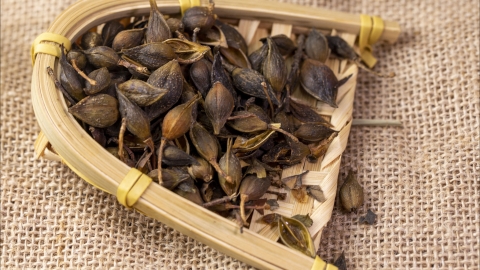What are the external uses and benefits of Forsythia?
Generally, as a common traditional Chinese herb, topical application of Forsythia (Lianqiao) offers various functions and benefits, including clearing heat and detoxifying, reducing swelling and dispersing nodules, promoting wound healing, relieving itching and dampness, and inhibiting bacteria and inflammation. It is suitable for various mild skin discomforts. Detailed analysis is as follows:

1. Clearing Heat and Detoxifying: Topical use of Forsythia has the effect of clearing heat and detoxifying, suitable for skin conditions such as abscesses, swelling, heat, and pain. Applying powdered Forsythia externally or using its decoction for wet compresses can help remove local heat toxins, alleviate redness and swelling, and relieve skin discomfort caused by heat toxin accumulation.
2. Reducing Swelling and Dissipating Nodules: For swollen lymph nodes or initial hard lumps caused by boils on the skin surface, topical application of Forsythia can help reduce swelling and dissipate nodules. Its active ingredients can penetrate the skin, promote local blood circulation, aid in resolving the hard lumps, reduce swelling, and prevent the condition from worsening.
3. Promoting Wound Healing: When skin ulcers rupture and fail to heal for a long time, causing exudation and difficulty in wound closure, topical application of Forsythia can promote wound healing. Combining Forsythia with other herbal medicines to make an ointment for external application or using its decoction to clean the wound can help maintain a clean wound surface, promote granulation tissue growth, and accelerate wound healing.
4. Relieving Itching and Dampness: Topical use of Forsythia can also relieve itching and dampness, making it suitable for skin itching and dampness caused by conditions like eczema eczema and dermatitis. Washing the itchy areas with Forsythia decoction can suppress local dampness, reduce itching, and alleviate symptoms such as redness and rashes caused by dampness invasion.
5. Inhibiting Bacteria and Reducing Inflammation: Forsythia contains ingredients such as forsythoside, which have certain antibacterial effects. When applied topically, it can exert anti-inflammatory effects on mild bacterial skin infections. For example, in the early stages of infection characterized by mild redness and pain, wiping the affected area with Forsythia decoction can inhibit bacterial proliferation and reduce inflammatory responses.
When using Forsythia topically, it is important to first clean the skin, choose the appropriate method based on specific symptoms, understand its indications, avoid using it on large areas of damaged skin or in individuals with sensitive skin, and strictly follow medical instructions to ensure safety and effectiveness.




